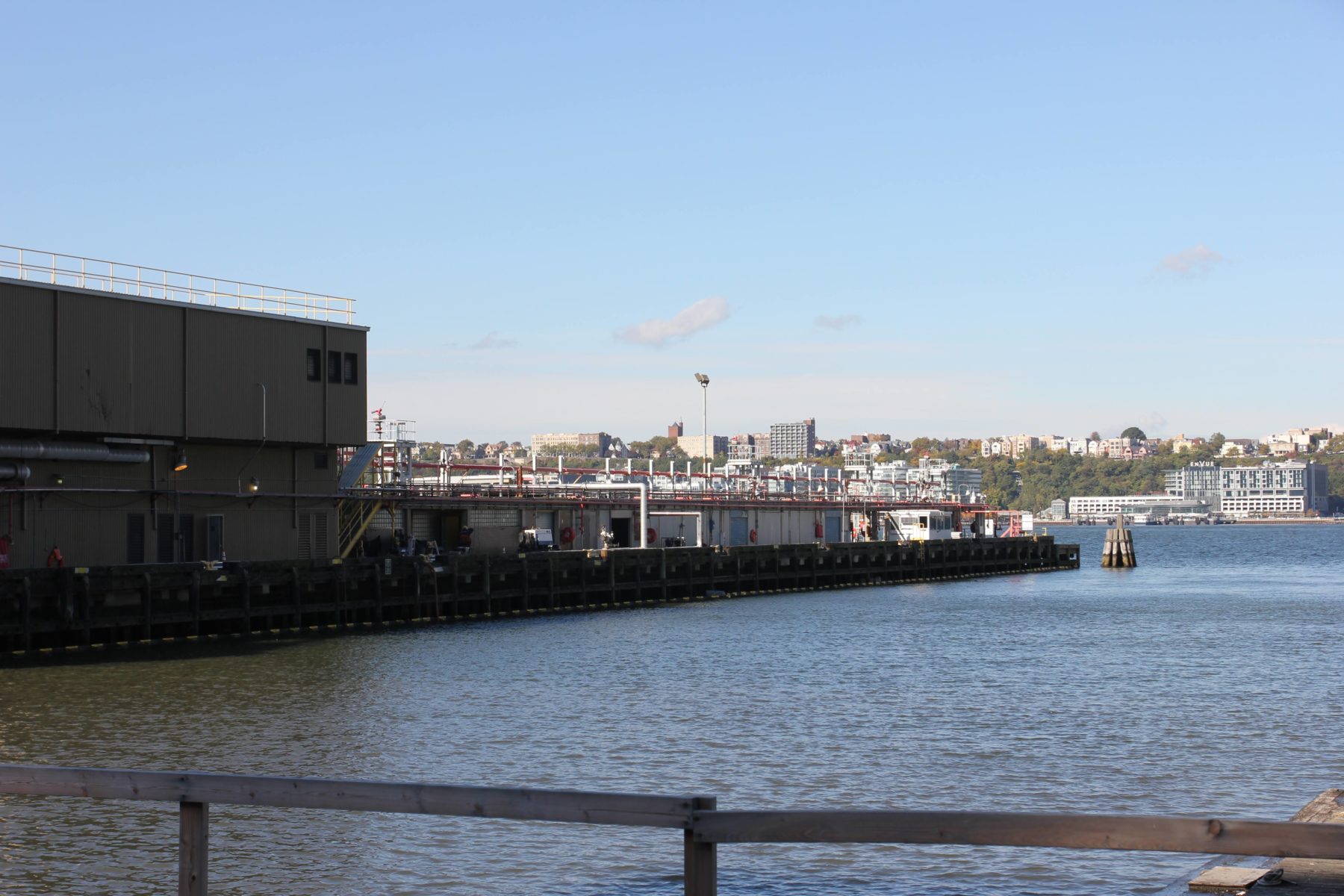
ConEd has been accused of dumping hot, dirty water off Pier 98, located at the northern corner of Hell’s Kitchen. (Credit: Daniel Shailer)
After centuries of industrial abuse, the Hudson River still needs defending, and so does the complex ecosystem that calls it home.
“I’m speaking for the fish,” said Tom Fox, a lifelong advocate for Manhattan’s waterfront. “They don’t have a very loud voice.”
Fox spoke louder than ever in August when he accused Consolidated Edison (ConEd) of dumping hot, dirty water off Pier 98, located at the northern corner of Hell’s Kitchen. But it appears his 60-Day “Notice of Intent,” filed on August 10, fell on deaf ears. “We didn’t sue, we said we’d like to talk,” said Fox, who oversaw the creation of Hudson River Park, where Pier 98 operates, 25 years ago. “But we didn’t have anyone to talk to.”
The 60 days ran out on October 10, so Fox escalated his allegations to Robert Yalen, Assistant United States Attorney for the Southern District of New York. Yalen and the Department of Justice can bring federal charges on behalf of the Environmental Protection Agency (EPA) against ConEd and the State Department of Environmental Conservation (DEC), the entity responsible for regulating the energy company. If Yalen doesn’t prosecute, Fox is determined to return to his citizen’s suit.
ConEd’s spokesperson says their lawyers “have been in direct contact,” after reading the allegations. But, no member of Fox’s team can remember communication beyond one phone call six weeks ago to arrange a meeting, which never happened.
“The silence is deafening,” said Richard Emery, Fox’s lawyer.
Fox brought his allegations to the City Club of New York, a civic watchdog where he serves on the board. Together with Emery, the same team successfully sued the Army Corps of Engineers in 2017, halting development plans on Pier 55, which a District Court found would have violated the Clean Water Act.
Fox now alleges ConEd is breaking the Clean Water Act too, sometimes by releasing water 20 degrees hotter than the Hudson, sometimes with water that contains illegal levels of copper, and sometimes by not fully reporting the quality of water they discharge at all. A ConEd spokesperson said at a Manhattan Community Board Four meeting in September that the violations are infrequent and “minor,” or just “administrative fouls.”
Advocates also question the validity of ConEd’s discharge permit, issued by the DEC, which outlines the permissible temperatures and contaminant levels in water released to the Hudson. The plant’s most recent discharge permit expired in April 2016, but the company has operated under a valid extension since then, a DEC Regional Water Engineer, Selvin Southwell, told the same MCB4 meeting.
After considering the renewal for over six years, the DEC said the new permit will be ready within two months. Fox replied in the meeting that, while ConEd waits, it has illegally modified the plant, and that the DEC has failed to provide timely, independent oversight.
Scientists fear the hot, dirty discharge could affect water oxygen levels and fish’s migration patterns, but the lack of transparency alone has local residents concerned.
“It’s really hard to imagine how to build trust if we can’t have a reliable source to ensure us that the harbor is clean,” said Graeme Birchall, who runs a free kayaking club downstream of Pier 98.
More than 500,000 New Yorkers use the club knowing the river isn’t as clean as it should be, because they can use the weather forecast to anticipate when rain will make the water dirtier. But with unpredictable industrial pollutants and no independent watchdog to warn them, Birchall fears a community only just beginning to believe in a cleaner future for the Hudson river could be lost.
“It’s blindsiding us,” he said, “because we just don’t know.”
Reporter’s note: Fox’s allegations are detailed in a letter to ConEd and the DEC on August 10. Both soon-to-be defendants responded to those allegations in a Manhattan Community Board Four, Waterfront, Parks and Environment Committee meeting on September 8.
About the author(s)
Daniel Shailer is a freelance climate reporter and student at Columbia School of Journalism.



